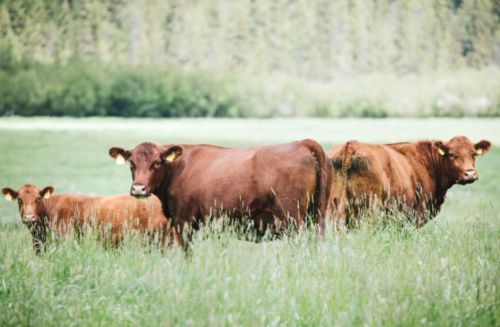

There are numerous health benefits of grass-fed beef that make it highly attractive to many health-conscious individuals. By understanding these benefits, one can make a better consideration of food selection. This article will examine the health benefits, environmental impact, and ethical concerns associated with choosing grass-fed beef. Being informed about these factors helps consumers make more conscious choices that are better for their health and well-being, as well as for the environment.
Nutritional Advantages
Grass-fed beef is nutrient-dense and rich in omega-3 fatty acids that keep your heart healthy. These good fats help support inflammation resistance and overall health. Grass-fed meat also has an abundance of vitamins, including vitamin E, which is an antioxidant that boosts immune function and skin vitality.
Lower Saturated Fats
One of the main advantages of grass-fed beef is its lower saturated fat content. It offers a lower-fat option compared to grain-fed types. A decrease in saturated fats undoubtedly contributes to improved cardiovascular health. Eating leaner cuts of meat can be part of a balanced diet, and help lower cholesterol levels and the risk of coronary heart disease.
Rich in Antioxidants
Grass-fed beef is also a source of antioxidants. These compounds help combat oxidative stress in the body, which reduces cell damage. Antioxidants play a crucial role in maintaining overall health and preventing chronic diseases. By incorporating grass-fed beef into meals, individuals can benefit from these protective properties and support their long-term wellness.
Environmental Impact
Grass-fed beef is an environmental net positive. Grass-fed cattle are typically pasture-based, which also contributes to the health of the soil and biodiversity. Using this practice may result in fewer greenhouse gas emissions than traditional methods. By opting for organic products, you conserve natural resources and provide future generations with a healthier planet.
Ethical Considerations
The owners of these operations typically raise these cattle in a more humane manner. They access open pastures in line with their natural grazing behavior. This method is beneficial for animals and yields healthier meat. Grass-fed options may appeal to consumers worried about animal welfare, thus encouraging ethical consumption.
Better Flavor Profile
Grass-fed beef boasts a distinctive flavor profile that many people appreciate. The taste is generally more full-bodied. That unique flavor is the result of the cattle eating a variety of grasses, plants, and shrubs. Grass-fed beef offers a superior culinary experience and a distinct taste for discerning enthusiasts.
Supporting Local Farmers
Buying grass-fed beef will often provide support for local agriculture. Grass-fed operations are typically family-run institutions in many instances. Buying their products is beneficial for the local economy and helps sustain farming communities. With this support comes a deeper connection to the origins of food and the practices surrounding it.
Improved Digestibility
There’s plenty of research about fatty acid chains and how grass-fed beef is easier to digest. The meat is less processed due to the animal’s natural diet, which makes it more tender and flavorful. People who are sensitive in the digestive area can also adopt it, as it eases digestion by reducing nutrient availability and digestive burden, which may allow for better overall nutrient absorption, thus making the consumption process less stressful.
Variety of Cuts
Grass-fed beef offers a variety of cuts, ranging from steaks to ground beef, which provides versatile options for culinary enthusiasts. This factor allows you to be creative in preparing different meals. It can spice up dinner prep and provide a variety of tastes.
Conclusion
Beef from grass-fed cows is more beneficial for your health and the environment than you can imagine. The nutritional benefits, along with ethical and ecological factors, make it a preferred option. Grass-fed is also a better choice for the planet and a much tastier, more nutritious product.


